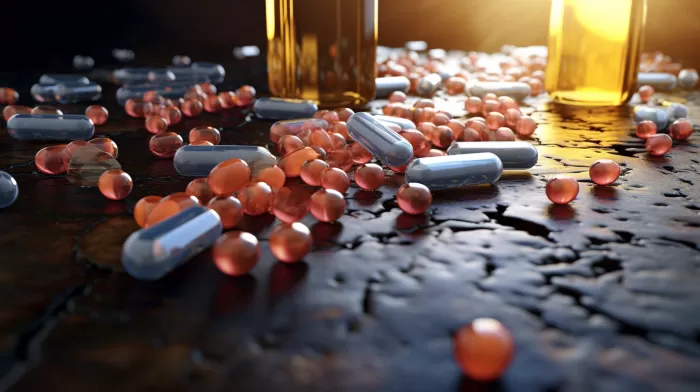When it comes to drugs, most people think substances like heroin or cocaine are the most dangerous. But what if there are other, more insidious substances that can potentially threaten millions of lives? What’s even more alarming is that many of us might be unknowingly consuming these substances on a daily basis.
A Bigger Problem than Heroin
Meet antibiotics. You might know them as the miracle pills that help cure bacterial infections and save lives. However, experts like Dr. Jonny Anomaly of Duke University worry that they may now also be one of the major risks to our health and society.
Dr. Anomaly argues that our current rate of antibiotic use is far deadlier than illegal drugs like heroin. He believes that instead of using resources to fight the “unwinnable war” on illegal drugs, the government should focus on curbing the overuse of antibiotics.
Antibiotic Overuse in Farming
One of the primary ways antibiotics are overused is in the farming industry, particularly in factory farming. Farmers give their animals antibiotics to keep them healthy and promote growth, but the residues of these drugs then end up in the meat that we consume. So, every time you enjoy a steak or a burger, odds are you’re ingesting antibiotic residues, too.
This overuse is leading to the alarming rise of antibiotic-resistant bacteria. These “superbugs” are immune to the very drugs that were designed to kill them. Every time we consume meat with antibiotic residues, it adds to the likelihood of antibiotic-resistant strains emerging, making it more difficult to treat illness down the line.
How to Address Antibiotic Overuse
Dr. Anomaly suggests several strategies that can help curb antibiotic overuse and its consequences:
- Phase out the use of antibiotics in farming to reduce antibiotic residues in meat
- Offer cash incentives to Big Pharma to help conserve existing antibiotics
- Ban the over-the-counter sales of antibiotics in developing nations
- Set up a global surveillance system to track antibiotic-resistant bacteria
Without implementing these strategies, we’re likely to face a future where once-treatable illnesses can become deadly, and medicines lose their efficacy over time.
The Misguided War on Drugs
Dr. Anomaly acknowledges that illegitimate drug use, such as heroin addiction, poses a burden on a user’s friends and families. However, he argues that this doesn’t justify treating it as criminal behavior.
In fact, he contends that most of the crime and violence associated with illegal drugs arises from prohibition laws, rather than drug use itself. In addition, there is weak evidence supporting the claim that stimulant drugs increase violent tendencies.
To illustrate his point, Dr. Anomaly points to countries like Portugal, where recreational drug use has been decriminalized. Instead of suffering an epidemic of drug problems, these countries have not seen a significant increase in drug consumption. This goes to show that greater accessibility doesn’t necessarily lead to more drug use by adults or children, debunking concerns from supporters of strict drug laws.
Time to Rethink Our Priorities
As Dr. Anomaly rightly puts it, policymakers should shift their focus from a losing battle against recreational drug users to the far more dangerous issue of antibiotics misuse. By taking into account the long-term consequences, we may be able to avoid a future where millions of lives are at risk due to ineffective antibiotics.
The key lies in raising awareness, supporting policies that encourage responsible antibiotic use, and combating the rise in antibiotic resistance. This will require collaboration from all involved, from governments to healthcare providers, the pharmaceutical industry to the farming sector, and, ultimately, to us, the consumers.
Taking these steps now may be our best chance of mitigating the antibiotic crisis and ensuring that these life-saving drugs can continue to serve their purpose well into the future.



